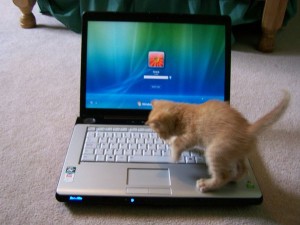If you’re a member of LinkedIn, Last.fm or eHarmony, it might be a good idea to immediately change your password. In case you haven’t heard, these three sites have been the latest social networks to suffer from massive security breaches, thanks to an alleged Russian hacker leaking their databases of passwords.
Given the pervasive trend of people using one password across platforms, these successions of leaks might severely impact the privacy strength of all your online accounts.
Go reset your LinkedIn password here. Then, if you’re curious, find out if it was one of the 6.5 million passwords leaked here. Online security has always been an important part of any open network, despite the often ridiculous lengths IT departments will go to in order to ensure that users choose a strong passkey. Here are some tips to beef up your own passwords.
[youtube]http://www.youtube.com/watch?v=fcG7ftYMObA[/youtube]
Sadly, this has happened to me too many times to count.
Don’t be lazy
This may sound obvious and cliched, but stay away from things like “Password1” or “letmein”. You’d be surprised how many people still use them, as seen from SplashData’s recent study on the most-used passwords of 2011. According to its CEO Morgan Slain, the list was compiled from files containing millions of stolen passwords posted online by hackers. In descending order, they are:
- password
- 123456
- 12345678
- qwerty
- abc123
I’m sure none of these are your passwords. Right? Right. Moving on.
Go local

A good way to ensure that your passwords don’t show up in any major database is to utilise uniquely Singaporean terms. We’re a generally small fraction of the global online population, and cultural terminology familiar to Singaporeans such as “bakchormee!23” would likely baffle any would-be hacker overseas.
Non-English words would be best, but street names, Singlish and a combination of all three would give you a relatively secure password.
Get creative

One way is to use a word such as “spiffyrocks”, moving your fingers up one row on the keyboard. “spiffyrocks” then becomes “W08rr649diw”.
With each site account, add a relevant customised add-on at the end of your password (e.g. bakchormee!23*y0utub3), rather than starting with the website name, as evidenced by the use of the starting word “link” being the most popular hacked password on LinkedIn.
In short – don’t share or use common passwords, be cautious of fake login screens that mine your personal data and stay web-smart!

 Follow
Follow